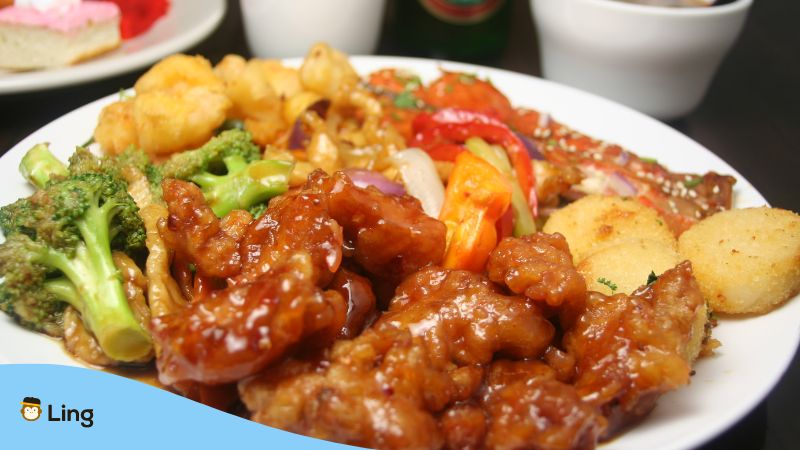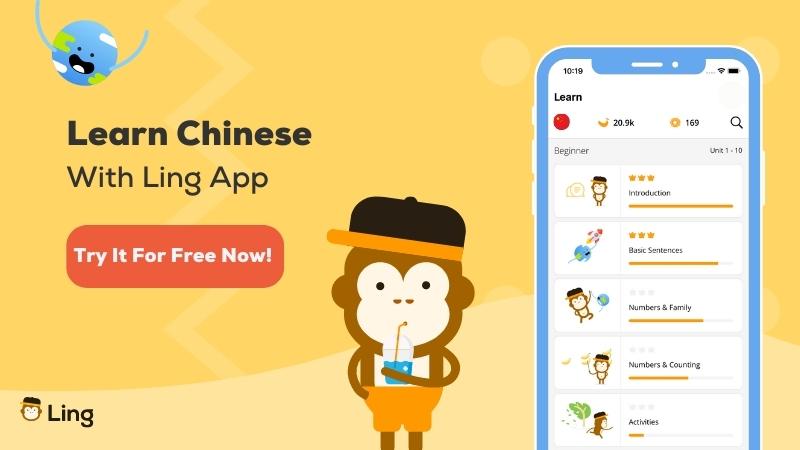Adjectives are like flavorful spices that bring life to your Chinese sentences. They add color, depth, and personality to your writing. Your grammar would be like a bland piece of white bread without Chinese adjectives. It’s not that it won’t be edible, but it certainly won’t taste good!
This guide will explore the fascinating world of Chinese adjectives and discover how they can take your Chinese language learning to the next level. Prepare to spice up your sentences and impress your friends with your newfound linguistic prowess!
Alright, let’s do this!
Importance Of Chinese Adjectives
Chinese adjectives are like the seasoning of your language soup, adding that extra kick of flavor that makes your sentences pop! They’re like the cherry on top of your verbal sundae, making your words sound more vibrant and exciting.
Think of them as the superheroes of your vocabulary, with the power to describe nouns and everything from the color of the sky to the taste of your favorite dumplings. They’re the spice that makes your conversations sizzle, the glue that holds your sentences together, and the sprinkles on your language cupcake.
Chinese adjectives are like a box of crayons, each color representing a different character, emotion, or feeling. They’re the paintbrushes that let you create a beautiful masterpiece with your words and the spark that ignites your imagination.
Common Chinese Adjectives
Learning adjectives is a great way to add depth and nuance to your language skills. So, it’s time to add some spice to your Chinese vocabulary!
In this section, we’re diving into the most common Chinese adjectives. These descriptive words are used in different scenarios, from describing the weather to commenting on a person’s appearance. They’re also used to describe emotions and opinions.
So, let’s look at some of the most common Chinese adjectives without further ado.
Happy – 高兴 (Gāo Xìng)
If you’re feeling joyful, content, or just plain happy, then 高兴 (gāo xìng) is the word for you. This adjective comprises the characters for “high” and “exciting,” which perfectly captures the feeling of being on top of the world.
Example sentence:
- Today’s weather is really nice, and I’m very happy.
- 今天天气真好,我很高兴。
- Jīn tiān tiān qì zhēn hǎo, wǒ hěn gāo xìng.

Joyful – 快乐 (Kuài Lè)
Similar in meaning to 高兴 (gāo xìng), 快乐 (kuài lè) is all about positive emotions. However, this adjective is a bit more general and can be used to describe any kind of joy or happiness.
Example sentence:
- We’re very joyful when we sing together.
- 我们一起唱歌很快乐。
- Wǒ men yì qǐ chàng gē hěn kuài lè.
Fun – 好玩 (Hǎo Wán)
Life is too short to be boring, which is why we need 好玩 (hǎo wán) in our vocabulary. This adjective describes anything that’s enjoyable, entertaining, or just plain fun.
Example sentence:
- This game is really fun; why don’t you give it a try?
- 这个游戏真的很好玩; 你也来试试吧?
- Zhè gè yóu xì zhēn de hěn hǎo wán. Nǐ yě lái shì shì ba?
Beautiful – 美丽 (Měi Lì)
Whether you’re admiring a stunning landscape, a breathtaking work of art, or even just a pretty face, you can use 美丽 (měi lì). This adjective is all about visual beauty and is often used to describe natural scenery.
Example sentence:
- This mountain is very beautiful, and I really want to go see it.
- 这座山非常美丽,我很想去看看。
- Zhè zuò shān fēi cháng měi lì, wǒ hěn xiǎng qù kàn kàn.

Cute – 可爱 (Kě Ài)
From fluffy animals to adorable babies, there’s no shortage of cuteness in the world. When you want to describe something as cute or lovable, you can use 可爱 (kě ài).
Example sentence:
- This little cat is so cute, I really want to hold it.
- 这只小猫好可爱,我好想抱抱它。
- Zhè zhī xiǎo māo hǎo kě ài, wǒ hǎo xiǎng bào bào tā.
Intelligent – 聪明 (Cōng Míng)
If you want to describe someone smart, quick-witted, or just plain clever, then you can use 聪明 (cōng míng). This adjective is made up of the Chinese characters for “quick” and “bright.”
Example sentence:
- My friend is very intelligent and always comes up with the best solutions.
- 我的朋友非常聪明,她总是可以想到最好的解决方案。
- Wǒ de péng yǒu fēi cháng cōng míng, tā zǒng shì kě yǐ xiǎng dào zuì hǎo de jiě jué fāng àn.
Interesting – 有趣 (Yǒu Qù)
Life is full of interesting things, from books to movies to people. When you want to describe something as interesting, you can use 有趣 (yǒu qù).
Example sentence:
- This novel is very interesting, I’ve already read it twice.
- 这本小说非常有趣,我已经读了两遍。
- Zhè běn xiǎo shuō fēi cháng yǒu qù, wǒ yǐ jīng dú le liǎng biàn.
Tired – 累 (Lèi)
Whether you’ve had a long day at work or a tough workout at the gym, sometimes you feel tired. When describing this feeling, you can use 累 (lèi).
Example sentence:
- I ran a lot today, and now I’m very tired.
- 我今天跑步跑得很多,现在非常累。
- Wǒ jīn tiān pǎo bù pǎo dé hěn duō, xiàn zài fēi cháng lèi.
Delicious – 好吃 (Hǎo Chī)
Food is one of life’s greatest pleasures, and when you want to describe something as delicious or tasty, you can use 好吃 (hǎo chī).
Example sentence:
- Chinese food is very delicious.
- 中国菜很好吃。
- Zhōngguó cài hěn hǎochī.

New – 新 (Xīn)
When you want to describe something as new, whether it’s a product, an idea, or a relationship, you can use 新 (xīn). This adjective is all about freshness and novelty.
Example sentence:
- I bought a new shirt, and I really like it.
- 我买了一件新衣服,非常喜欢。
- Wǒ mǎi le yī jiàn xīn yī fú, fēi cháng xǐ huān.
Hot – 热 (Rè)
Sometimes things can get pretty hot, whether it’s the weather or a cup of tea. When describing something as hot or warm, you can use 热 (rè).
Example sentence:
- My coffee is still hot. You need to wait a bit.
- 我的咖啡还很热,你要等一等。
- Wǒ de kā fēi hái hěn rè. Nǐ yào děng yī děng.
Cold – 冷 (Lěng)
On the other end of the temperature spectrum, we have 冷 (lěng), which literally means cold. This Chinese adjective can describe everything from the weather to a drink.
Example sentence:
- The water in this fridge is very cold.
- 这个冰箱里的水非常冷。
- Zhè gè bīng xiāng lǐ de shuǐ fēi cháng lěng.

Slow – 慢 (Màn)
Sometimes things can move a little too slowly for our liking. When you want to describe something as slow or sluggish, you can use 慢 (màn).
Example sentence:
- This bus is driving too slowly, we’re in a hurry.
- 这辆公交车开得太慢了,我们要赶时间。
- Zhè liàng gōng jiāo chē kāi dé tài màn le, wǒ men yào gǎn shí jiān.
Fast – 快 (Kuài)
Life moves pretty quickly, and when you want to describe something as fast or speedy, you can use 快 (kuài). This adjective can describe everything from a fast car to a fast internet connection.
Example sentence:
- This car is driving very fast, we’ll be there soon.
- 这辆车开得非常快,我们很快就到了。
- Zhè liàng chē kāi dé fēi cháng kuài, wǒ men hěn kuài jiù dào le.
Learn Chinese Adjectives
Learning Chinese can be challenging, but don’t let that scare you from mastering Chinese adjectives. Trust me, once you have these descriptive Chinese words under your belt, you’ll be unstoppable in your Chinese conversations.
Adjectives are the key to adding depth and color to your conversations, whether you’re describing a person, place, or thing. Without them, your Chinese vocabulary would be incomplete, and your ability to communicate effectively would suffer.
So, if you’re serious about learning Chinese, don’t neglect the importance of learning adjectives. They may seem like small pieces of the puzzle, but they’re actually the glue that holds everything together.
With a solid foundation of Chinese adjectives, you’ll be well on your way to becoming a fluent speaker of this fascinating language. And, if you want to learn more Chinese vocabulary, check out the Ling app!
Learn Chinese With Ling
Are you ready to take your language skills to the next level? Say hello to the Ling app, which makes learning a new language fun and easy!
With the Ling app, you’ll have a blast while you learn, with interactive lessons and games that keep you engaged and entertained. Whether you want to master the basics or take your language skills to the next level, Ling App has covered you. So what are you waiting for?
Download Ling App on App Store or Play Store now and start your language learning journey today.




































































